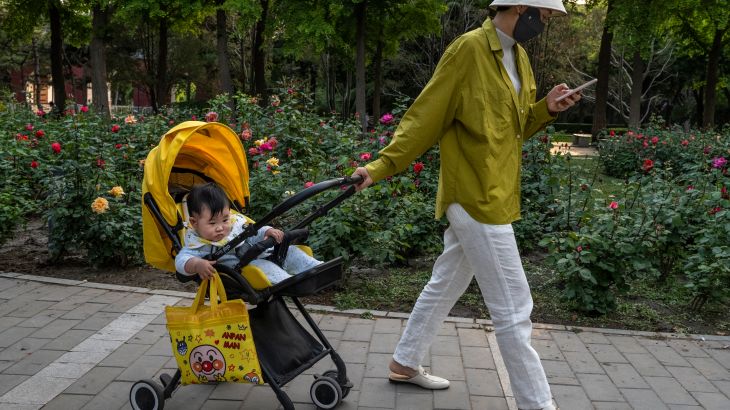
China’s three-child policy: Too little too late?
On Thursday, June 10, 2021 at 19:30GMT:
Faced with plunging birthrates and an aging population, China will now allow married couples to have up to three children, relaxing a two-limit policy. But many young people are shaking their heads at the change, saying it’s already too expensive to raise kids in China’s major cities.
According to the government, the new policy will help “preserve the country’s human resource advantages.” It comes as the world’s most populous nation reports a steep drop in births. Some 12 million babies were born last year, compared to 18 million in 2016, China’s latest census data found. That’s the lowest number of births recorded since the 1960s. Meanwhile, 20 percent of the population is now over the age of 60 years old.
China’s demographic woes are in part the result of four decades of a strictly enforced one-child policy. Couples who flouted this rule faced hefty fines and sometimes forced abortions.
Because many parents favoured sons and terminated female fetuses or abandoned baby girls, the policy resulted in a major gender imbalance. There are now 17 million more men ages 20 to 40 years old than women, further imperiling fertility.
China relaxed the one-child limit to two children in 2016, but to little effect. Human rights advocates say China should lift child restrictions entirely, a move that would help build trust among a generation of women whose mothers were sometimes forcibly sterilised.
Meanwhile, economists and other experts are urging the government to adopt wider reforms to increase the appeal of having larger families. That includes expanding childcare and paternity options, ensuring women’s rights are protected in the workplace and legalising births outside of marriage.
Whether China can afford such changes and is willing to make them remains to be seen. In this episode of The Stream we ask, is China’s three-child policy too little too late? Join the conversation.
On this episode of The Stream, we speak with:
Victor Teo, @victorteo_irap
Political Scientist, CRASSH
Liu Ye, @YeLiuSun
Professor, King’s College
Yige Dong, @yige_dong
Sociology & Gender Professor, State University of New York